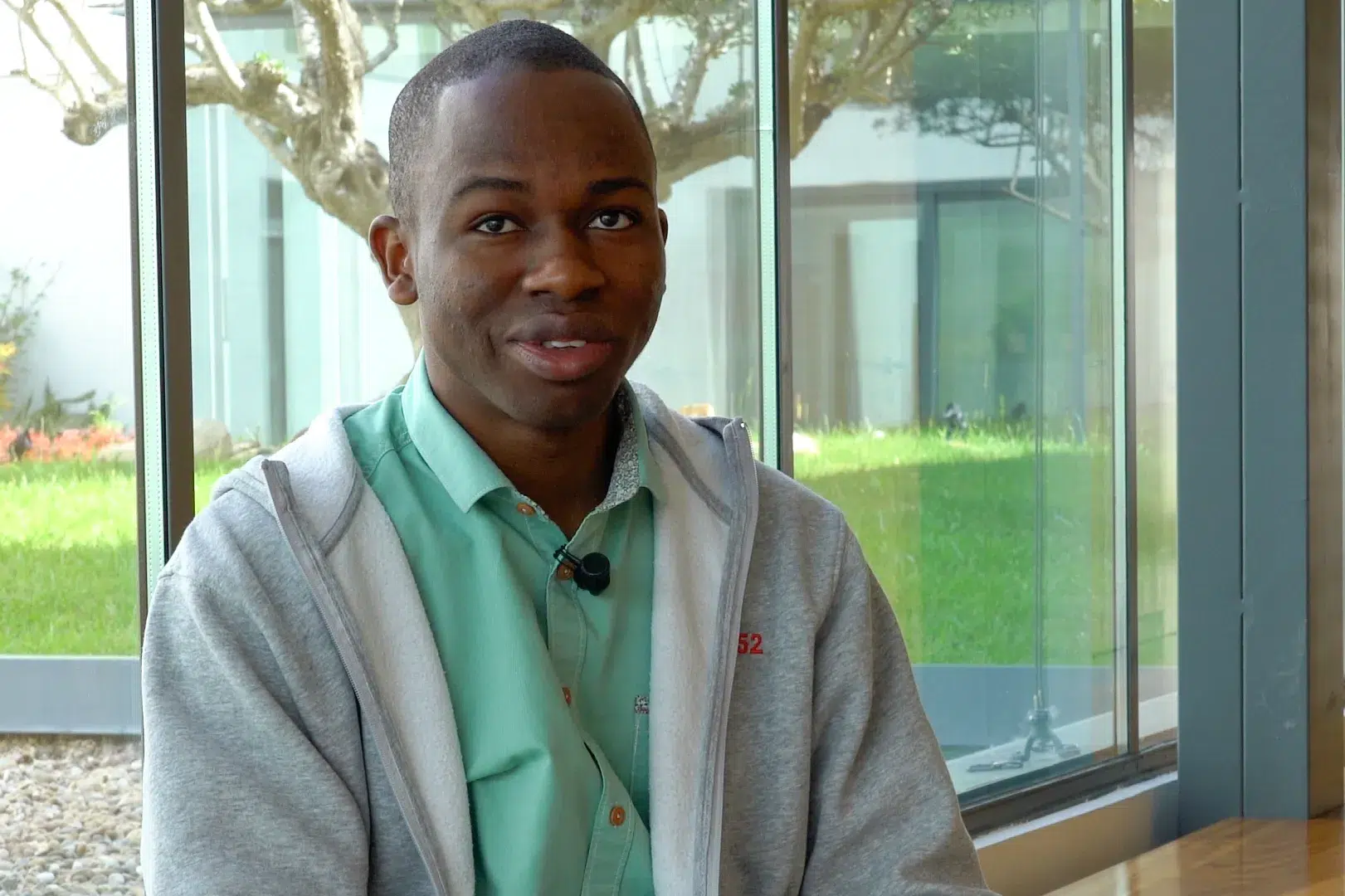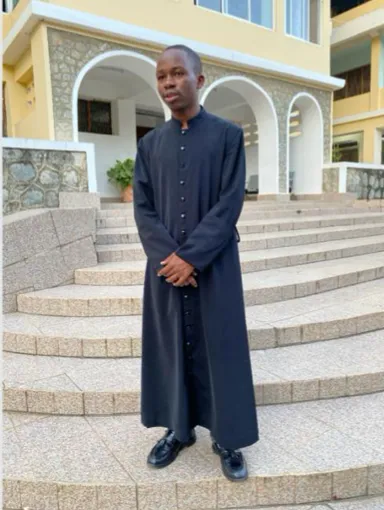
Elias Emmanuel Mniko is 22 years old. and a look that conveys peace and conviction. Born in the region of Mwanza, northern Tanzaniaon the shores of Lake Victoria. She grew up in a home full of harmony and faith, where her father Emmanuel and her mother Miluga lovingly raised their four children.
Since high school, he began to feel a deep desire: to be a priest. He could not fully explain it, but something inside him would light up every time he saw the priests at school: dedicated, serene and close. He was fascinated by the seminarians in their white cassocks, elegant and discreet. "It was a desire that the Lord put in my heart," he says now with simplicity.
Although he did not enter the minor seminary, Elias was not discouraged. He spent a year of formation at the vocation house. St. John Paul IIin his native diocese. There, in the silence of prayer and the joy of service, he matured his vocation. He understood that, in Tanzania, being a priest is not just a life choice: it is an urgent necessity..
The diocese of Mwanza, to which Elias belongs, faces great challenges. Although Catholics represent about 30 % of the population - some 1.2 million people - priests are scarce and communities are growing rapidly. In many villages, Mass is celebrated only once a month, and there are faithful who walk more than 10 kilometers to attend. Priestly vocations are a blessing desired with hope and faith by all the people.
In spite of everything, the Church in Mwanza is alive. The faithful are enthusiastic, the young people are proud of their faith, and the diocese is working hard to promote educational and health projects. Many schools and hospitals are run by the Church. There, in the midst of simplicity and sometimes precariousness, hope is sown every day.
Currently, Elias resides in the Bidasoa international seminarin Pamplona. He has completed his first year of Philosophy and his face reflects amazement and gratitude. "I am living a wonderful and fraternal experience," he says. He is excited about sharing daily life with seminarians from all continents, learning from the formators and getting to know other cultures.

Europe is teaching me many things," he says. Europeans are very loving. But I also believe that you Europeans can learn from us Africans about the importance of family life.
Elijah speaks calmly, but his every word is charged with inner fire. He knows that priestly life demands sacrifices. He knows that, when he returns to Tanzania, a demanding mission awaits him: to care for many souls, to accompany scattered communities, to console the suffering and to be the living presence of Christ in the midst of his people.
Sometimes he thinks of his family, his land, the joyful songs at Mass and the ground corn that accompanies almost every meal. He also remembers his friends, his parish catechists and the bishop who encouraged him not to be afraid to say yes to God.
Life at the Bidasoa International Seminary seems to him to be a gift. There are times for prayer, study, sports, service and also parties. "Here we learn to be brothers," he explains. Although at first it was difficult for him to adapt - the cold of Navarre, the language, the food - today he feels at home. His Spanish improves day by day and, when he smiles, he does it with that African warmth.
Elias is not naive. He knows the problems of the Church, both in Europe and in Africa. In his country, in addition to the shortage of priests, there are social challenges: poverty, lack of access to education in rural areas and the risk of religious syncretism. But he also knows that there is a fire that will not go out. "Young people in Tanzania have a lot of hope. They know they are the future of the Church. That's why they want to train well, serve with joy and give their lives if necessary.
Mwanza, his diocese, has seen the birth of vocations like his. The local major seminary is unable to train all the candidates, so the diocese sends some, like Elias, to formation centers outside the country. It is a brave investment, in the hope that these young men will return to bear fruit.
Elias looks to the future without fear. "I want to go back to my country and serve my people. I want to be a good pastor, like Jesus. And, if I can, I also want to help other young people hear the voice of God". He says this with a peace that moves, because there is nothing stronger than a heart that is surrendered.
His story, like that of many African seminarians, is a song of hope for the whole Church. In a world where faith sometimes seems to be dying out, voices like his remind us that the Gospel is still alive, sowing in fertile lands like Tanzania.
Marta SantínJournalist specializing in religious information.